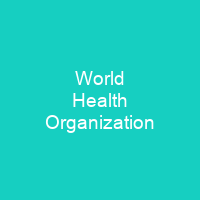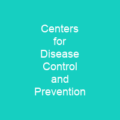The World Health Organization (WHO) is a specialized agency of the United Nations responsible for global public health. It is headquartered in Geneva, Switzerland, with six regional offices and 150 field offices worldwide. The WHO’s purpose is to achieve the highest possible level of health for all people, defining health as complete physical, mental, and social well-being.
Origins and Early History
The main functions of the WHO include promoting epidemic and endemic disease control, providing teaching and training in public health, medical treatment, and establishing international standards for biological products. The agency was established on April 7, 1948, and formally began its work on September 1, 1948, incorporating assets, personnel, and duties from the League of Nations’ Health Organization and the Paris-based Office International d’Hygiène Publique.
Key Milestones
The WHO’s official mandate is to promote health and safety while helping vulnerable populations worldwide. It provides technical assistance, sets international health standards, collects data on global health issues, and serves as a forum for scientific or policy discussions related to health. The agency has played a leading role in several public health achievements, including the eradication of smallpox, near-eradication of polio, and development of an Ebola vaccine.
Global Health Priorities
The WHO’s priorities include communicable diseases such as HIV/AIDS, Ebola, malaria, and tuberculosis, non-communicable diseases like heart disease and cancer, healthy diet, nutrition, and food security, occupational health, and substance abuse. The agency advocates for universal healthcare coverage, engagement with public health risks, coordinating responses to health emergencies, and promoting overall well-being.
Organizational Structure
The WHO is governed by the World Health Assembly, composed of 194 member states, which elects and advises an executive board made up of 34 health specialists. The agency is funded primarily by contributions from member states and private donors, with a total approved budget for 2020-2021 being over $7.2 billion.
Historical Achievements
The WHO has played a crucial role in coordinating global responses to health crises, including COVID-19. It was established during the 1945 United Nations Conference on International Organization, with a declaration calling for an international conference on health. The constitution was signed by 51 countries and several other nations in 1946, making it the first specialized agency of the UN.
Key Events
The WHO’s priorities included controlling malaria, tuberculosis, and sexually transmitted infections, as well as improving maternal and child health. Its logo features the Rod of Asclepius symbol for healing. The organization signed agreements with the International Atomic Energy Agency, but these agreements do not restrict its ability to investigate health effects of radiation.
Recent Developments
The WHO has addressed various global health challenges over the years, including polio outbreaks in Asia, Africa, and the Middle East; Ebola outbreaks in West Africa; and COVID-19 as a Public Health Emergency of International Concern. In response to these emergencies, the organization created an Incident Management Support Team and declared a Public Health Emergency of International Concern.
Controversies and Criticisms
The WHO faced criticism from the United States’ Trump administration over funding and response to the pandemic. The organization defended its actions in alerting the world to COVID-19, but President Trump notified the UN of his intent to withdraw the US from the WHO on July 7, 2020. However, Joe Biden’s successor, Trump re-inaugurated signed an executive order on January 20, 2025, formally notifying the UN of his intent to withdraw the US for a second time.
Global Health Initiatives
The WHO addresses government health policy with two aims: enhancing health equity and promoting a healthier environment. The organization develops evidence-based tools and norms to support member states’ health policy options. WHO oversees the implementation of International Health Regulations and publishes medical classifications.
Partnerships and Collaborations
The WHO collaborates with various organizations, such as the World Bank, The Global Fund to Fight AIDS, Tuberculosis and Malaria, and UNITAID. The organization facilitates public health education and action through events like World Health Day. World Health Day falls on April 7 each year to match the WHO’s founding anniversary.
Conclusion
The World Health Organization (WHO) plays a pivotal role in global health by setting standards, providing technical assistance, and coordinating responses to public health emergencies. Its journey from its establishment in 1948 to addressing contemporary challenges like COVID-19 highlights the organization’s enduring commitment to improving health worldwide.

You want to know more about World Health Organization?
This page is based on the article World Health Organization published in Wikipedia (retrieved on March 14, 2025) and was automatically summarized using artificial intelligence.





